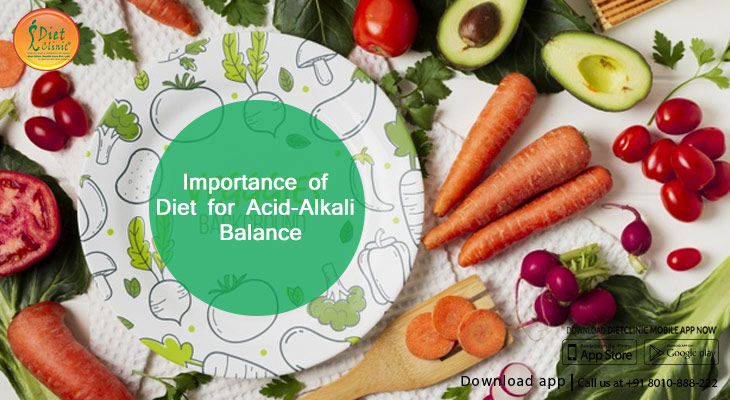
Dietician Sheela Seharawat
A Diet is one of the major components that influence the acid-alkali balance apart from exercise, stress levels and other aspects of lifestyle. For the best diet plan, be in touch with the best Dietician Sheela Seharawat at Diet Clinic. She will help you know about foods inclusion and exclusion in your diet more clearly.
What to Eat, What to Avoid!
Alkaline based foods are best to be eaten for the prevention of acidosis. But there are some foods that may increase the level of acid and could cause acidity. Here is a list given below that shows what foods can increase your acidity levels:
- Refined foods (sugars and maida)
- Most grains, (including wheat, oats, rye, barley)
- Oily & fried food
- Spicy food
- Coffee
Among the crowd of foods, there are some which leave an alkaline residue. These foods have a high level of magnesium, calcium, sodium and potassium in it. And there are foods that help in reducing acidity and maintaining the alkalinity of the blood. Some of the examples are citrus fruits (like oranges, sweet lime, grapefruit). Many vegetables are known to be alkaline such as yam, beetroot, carrots, sweet potatoes, radish etc.
If you want to keep a right acid-alkali balance, get your diet plan customised here at Diet Clinic exclusively by one of the top Dietician Sheela Seharawat. A diet should include 20 per cent of acid-forming foods like grains (like wheat, rye, oat, white rice, maida, barley), bread, fish, eggs, pulses, and 4/5th of alkaline foods such as fruits, skimmed milk, curd, jowar, bajra, brown rice, vegetable juices and potatoes, pumpkins, almost all vegetables like peas, radish, mushrooms, beetroot, cucumber, turi, dudhi, bhindi, fresh green beans, onions, cabbage, carrot, cauliflower, etc.
Get yourself here at Diet Clinic and get detailed about what is best for you.


.png)






